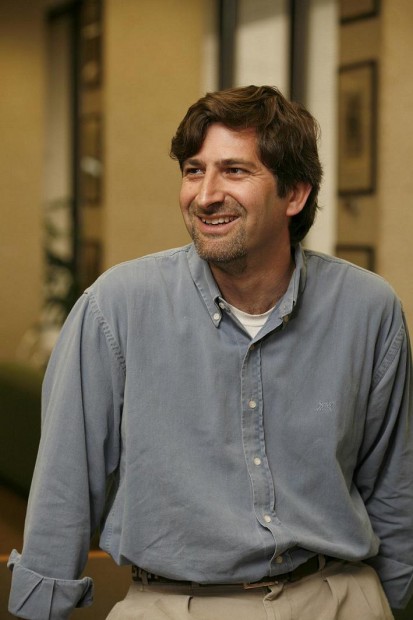The United Nations Human Rights Council has endorsed the nomination of Ariel Dulitzky, a clinical law professor at the University of Texas School of Law, to a five-person Working Group on Enforced or Involuntary Disappearances. The Working Group seeks to determine the fate of “disappeared” persons, people detained against their will without proper legal process by their government, and whose whereabouts remain unknown.
A native of Argentina, Dulitzky will hold the Working Group’s position reserved for the Latin American and Caribbean region. The appointment of Dulitzky occurred as the fourteenth regular session of the Human Rights Council—a body within the UN system made up of forty-seven states responsible for strengthening the promotion and protection of human rights—came to a close on June 18, 2010, in Geneva.
Dulitzky is a leading expert in international human rights law, particularly on the inter-American human rights system, and currently is the only UT Law professor serving on an international human rights body. At the Law School, he is also director of the Human Rights Clinic and director of the Latin America Initiative. Prior to joining the university, Dulitzky held a leadership position with the Inter-American Commission on Human Rights, an independent inter-governmental body of the Organization of American States.
“Ariel Dulitzky’s appointment to this important working group is an honor for the UT Rapoport Center for Human Rights and Justice and the School of Law,” said Karen Engle, the Cecil D. Redford Professor in Law and director of the Rapoport Center. “I feel certain that the UN, as well as the families and friends of those who have disappeared, will benefit from Ariel’s broad range of experience and from his critical listening and strong advocacy skills,” Engle said.
“I am deeply honored and humbled by the opportunity to serve at the Working Group,” Dulitzky said. “My appointment is, in part, recognition of the unique, interdisciplinary approach to human rights teaching and practice we take at UT. I will do my best to enhance and build upon the extraordinary leadership of past and current members of the Working Group,” he continued. “I am eager to help families find their loved ones, and to continue to pursue the ideal of justice and will seek practical solutions for human rights problems. I hope also that my new responsibilities will create additional learning and practical opportunities for UT students.”
According to the United Nations Declaration on the Protection of All Persons from Enforced Disappearance, an enforced disappearance occurs when “persons are arrested, detained or abducted against their will or otherwise deprived of their liberty by officials of different branches or levels of government, or by organized groups or private individuals acting on behalf of, or with the support, direct or indirect, consent or acquiescence of the government, followed by a refusal to disclose the fate or whereabouts of the persons concerned or a refusal to acknowledge the deprivation of their liberty, which places such persons outside the protection of the law.”
The Working Group on Enforced or Involuntary Disappearances was established by the then United Nations Commission on Human Rights in 1980 to assist families in determining the fate or whereabouts of their disappeared relatives. Since then, the Working Group has dealt with more than fifty thousand cases in eighty countries from all parts of the world.
In carrying out its mandate, the Group receives and examines reports of disappearances submitted by relatives of disappeared persons or human rights organizations acting on their behalf. Where appropriate the Group requires information about the case from the government in question. The Group deals with the numerous individual cases of human rights violations on a purely humanitarian basis, irrespective of whether the government concerned has ratified any of the existing legal instruments which provide for individual complaints procedures.
Dulitzky’s appointment is for three years and he will attend three regular sessions of the Working Group during the year, usually in Geneva. The Group’s meetings are held in private; however, the Working Group regularly invites representatives of governments, nongovernmental organizations, family members, and witnesses to attend. Following each session, the Working Group informs governments, in writing, of the decisions taken with regard to disappearances in their country.
Contacts: Professor Ariel Dulitzky, School of Law, 512-232-1256, 512-529-6520 (cell), adulitzky@law.utexas.edu, or Laura Castro, UT Law Communications Office, 512-232-1229, lcastro@law.utexas.edu.

